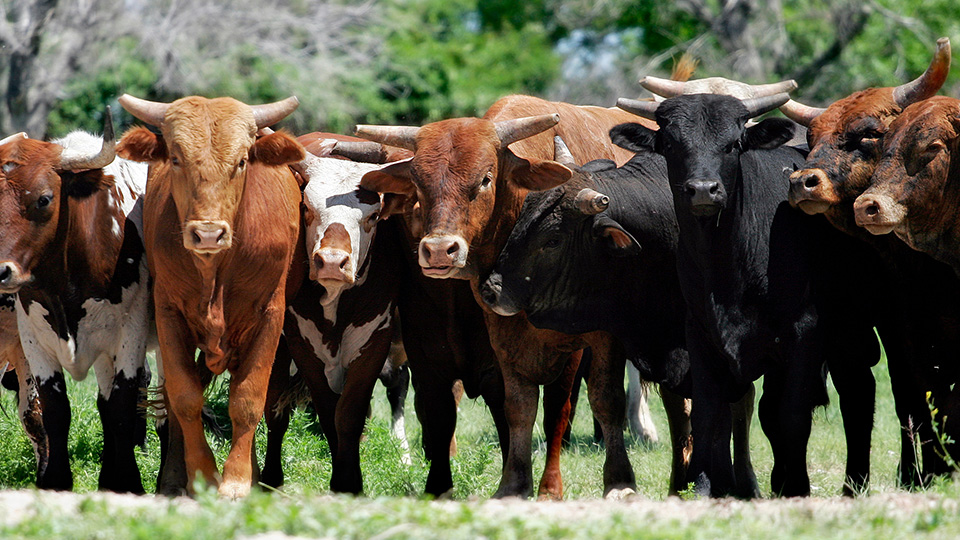Reposted from: https://www.nytimes.com/2024/09/30/opinion/rural-rage-harris.html
It’s no secret that rural Americans are angry with the Washington elite. Less discussed are some of the sensible reasons for it. For far too long, family farms have been crushed under the monopolistic power of Big Ag. And for decades, politicians from both parties either turned a blind eye to the oligopolies that rule over rural America — or climbed right into bed with them.
Take the chicken industry, for instance. With just four companies controlling over half of poultry production in the country, chicken processors have been able to collude to suppress wages, fix prices and retaliate against farmers who speak out. Poultry growers have little recourse when Big Chicken gives them a raw deal. Roughly a quarter live in places where there’s just one company to work with. Half live in places where there are no more than two.
That’s not a recipe for a healthy democracy — or a healthy food system, for that matter — and rural Americans know it. Some 88 percent of rural voters in battleground states say they would be more favorable toward a candidate who supports “cracking down on meat processing monopolies and ensuring local businesses can compete,” according to a poll this year by the Rural Democracy Initiative, a funding collaborative that marshals resources for rural communities.
Which brings me to the question of why Kamala Harris isn’t highlighting this administration’s admirable track record of taking on Big Ag. Since President Biden signed an executive order promoting competition in 2021, this administration has done more to level the playing field for chicken farmers than any in recent memory — but you wouldn’t know if from listening to stump speeches.
In 2022, the Justice Department filed a lawsuit alleging that Sanderson Farms and Wayne Farms, two chicken processors, engaged in deceptive practices that arbitrarily reduced farmers’ pay, eventually winning reforms to a hated system that landed many farmers in unsustainable debt. Last year, the Justice Department stopped Koch Foods from charging family farms a crippling “exit” fee when they wanted to stop raising chickens for the company.
“It’s long overdue,” Hugh Espey, a strategic adviser for Iowa Citizens for Community Improvement, told me. “This has to happen. We have been talking about Packer and Stockyard enforcement for years. For decades.”
This stuff is popular — and the perfect retort to Donald Trump’s attempts to throw around “Marxist” as a slur. Democrats are the ones fighting to save capitalism from oligarchs who collude to keep grocery prices up and wages down.
But news of how this administration has championed family farmers hasn’t broken through. Joe Maxwell, a hog farmer in Mexico, Mo., who is president of the Farm Action Fund, which fights agricultural monopolies, told me that his neighbors are unaware of it. While Mr. Trump has been talk and no action, the Biden-Harris administration has been all action, no talk.
“For whatever reason, they haven’t used the bully pulpit to highlight this work,” he said.
Ms. Harris is doing surprisingly well in rural areas anyway. She received 39 percent support in a new poll to be published Monday by the Rural Democracy Initiative, which surveyed 3,125 likely voters in 10 battleground states, 1,944 of whom were from rural areas and small cities. Compared with the 30 percent support that Mr. Biden scraped together in a poll this spring, it’s a big shift, led by Black people and people of color, women and young voters. While no one expects Ms. Harris to beat Donald Trump in rural America, losing less badly there could make all the difference in states like North Carolina and Georgia.
That’s why the Harris campaign hired a rural engagement director and put out a fact sheet that denounced “extreme consolidation in the food industry” and pledged support for “smaller businesses, like grocery stores, meat processors, farmers and ranchers, so those industries can become more competitive.” But she ought to talk more explicitly about the administration’s battles against Big Ag, and pledge to carry on the fight.
“It’s such a great opportunity for Democrats to outflank Republicans,” Austin Frerick, author of the new book “Barons: Money, Power, and the Corruption of America’s Food Industry,” told me. “This election is going to come down to a few voters in a few swing states, over grocery prices.” Explaining how monopolies hurt both consumers and farmers could help connect the dots.
Farmers already know this. They have been fighting for antitrust enforcement for decades, and have been deeply disappointed. They thought they had a champion in Barack Obama, who promised reforms and held a series of extraordinary hearings on the subject. Farmers and ranchers took big risks to testify about abuses they endured at the hands of the oligopolies they had to do business with. But the pushback from Big Ag was so severe that the Obama administration watered down its proposals. Then Republicans put them on ice. Then Mr. Trump threw them out and eliminated the stand-alone office that investigated abuse.
Farmers felt burned.
“They let us sink,” John Ingrum, a poultry grower in Mississippi who lost his farm after testifying at one of those hearings, told me. “When I got back from the hearing, there was a note stuck on my gate,” he told me. “It said, ‘You’re done.’” He never again received a batch of chicks from Koch Foods. He couldn’t pay off his loans and his farm went into foreclosure.
Farmers got the message: Reform is hopeless.
“The companies just have too much power,” Garry Staples, a chicken grower from Steele, Ala., told me.
Bitterness about that failed effort extends into cattle country, where the top four firms control 85 percent of the market. Mike Callicrate, an independent rancher in Kansas, told me that some farmers and ranchers who went out of business blame President Obama, and “they won’t acknowledge that Trump made it even worse,” he said.
“They are very angry,” he said. “People just kind of gave up on government. A lot of those family farmers turned into Trump voters.”
The challenge now is to convince farmers that it will be different this time around. There are signs that the current effort is slowly rebuilding trust. In North Carolina, a battleground state with more than 4,600 poultry farms, Aaron Johnson, a policy co-director for the nonprofit farm-advocacy organization RAFI, says the farmers he works with appreciate the progress, even if they aren’t Democrats.
“I have seen them evolve in terms of realizing who is on their side and who is not,” he told me.
Ms. Harris should make it clear that she’s on their side. Change is possible, but only if the White House has the stomach to stand up to Big Ag.



